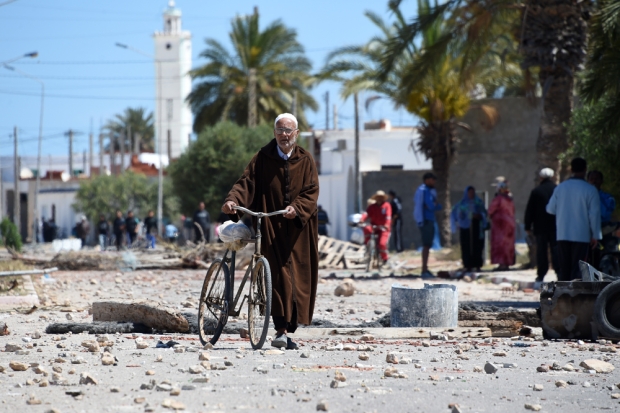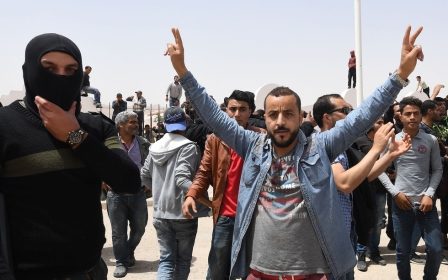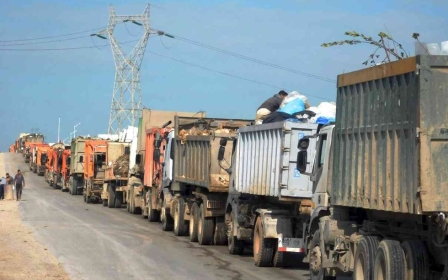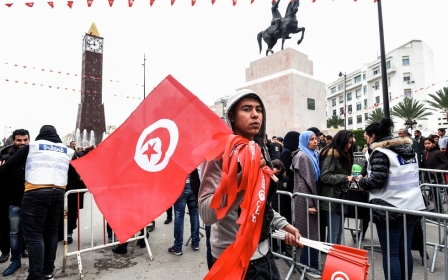Tunisian president deploys army to stop poverty protests
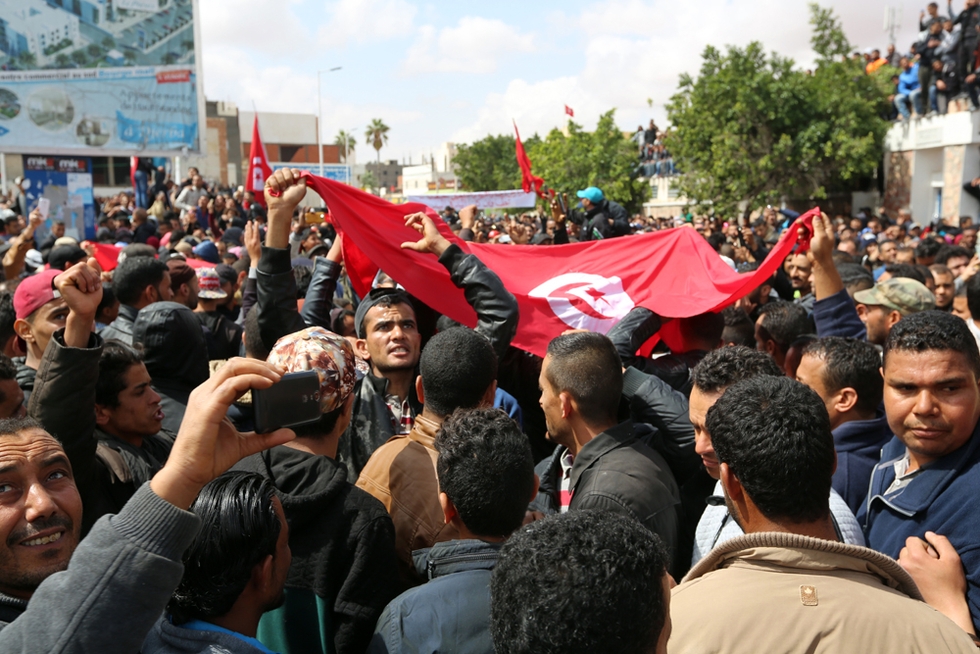
Tunisia's president said on Wednesday he will deploy the to protect industrial sites suffering disruption from general strikes and protests over poverty.
"We know this is a serious decision but it must be taken," Beji Caid Essebsi said in a speech in Tunis. "Our democratic path has become threatened and law must be applied but we will respect freedoms."
It is the first time troops in Tunisia will be deployed to protect industrial installations that are key to Tunisia's economy. Protests, sit-ins and strikes in recent years have cost the state billions of dollars.
The Tunisian government has faced growing social discontent over the economy, especially in inland regions, with protesters often staging sit-ins that block access to production sites.
"When they (demonstrators) get angry, they cut off roads. The roads belong to everyone and the state must face this," the president said. "I warn you from now," dealing with the military will become "difficult", he said.
He singled out the phosphate industry in the central mining region of Gafsa that had "come to a halt for five years".
"What do we have? We have phosphate, petrol and tourism, we have agriculture," including olive oil, he said. "The state must also protect the resources of the Tunisian people."
Six years since a revolution that toppled longtime dictator Zine El Abidine Ben Ali, Tunisia has not been able to resolve issues of poverty, unemployment and corruption that sparked the uprising.
On Monday, Tunisia's energy minister, Hela Chikhrouhou, said that sit-ins had halted production at energy company Perenco's Baguel and Tarfa fields, which the company website says are joint ventures for gas and condensate output.
Perenco operates the El Franig, Baguel, and Tarfa gas condensate fields with a production of 17 million standard cubic feet of gas per day, 2 mmscfd of LPG equivalent and 750 bopd of condensates, according to the company website.
A spokesman for Canada-based Serinus Energy said by email that its Chouech Essaida field in southern Tunisia had been shut since 28 February due to labour and social unrest.
Protests have centred on the southern Tataouine province where Italy's ENI and Austrian firm OMV have mainly gas operations, but have also begun in the central Kebili region.
Successive governments have struggled with social unrest in the south and central provinces where unemployed youth feel they have been left out of the economic benefits of the revolution.
In Tatouine region, a group of demonstrators has camped out for several weeks in the Sahara desert and threatened to blockade roads used by oil and gas companies unless they see more jobs and a share in the region's energy riches.
OMV said last week it had moved around 700 non-essential staff and contractors from its southern Tunisia operations as a precaution. It said production had not been affected.
ENI said protests had had no impact on its Tunisian production but it was monitoring the situation.
Chikhrouhou told a conference that total oil production had fallen to 44,000 barrels per day (bpd) from 100,000 bpd in 2010 because of social unrest, protests and low investment due to a lack of energy legislation.
Oil revenues fell from 3 billion Tunisian dinars ($1.24 billion) in 2010 to 1 billion Tunisian dinars in 2016, he said.
In the past, Tunisian protesters targeted the state-run phosphate business, where production falls since 2011 caused about $2 billion in losses. Output in phosphate - a key source of foreign income - has risen this year after agreements were reached with protesters.
The revival of the state-run phosphate production will help the North African country's economic growth, which also suffered from a decline in revenues from the tourism sector after major militant attacks in 2015.
New MEE newsletter: Jerusalem Dispatch
Sign up to get the latest insights and analysis on Israel-Palestine, alongside Turkey Unpacked and other MEE newsletters
Middle East Eye delivers independent and unrivalled coverage and analysis of the Middle East, North Africa and beyond. To learn more about republishing this content and the associated fees, please fill out this form. More about MEE can be found here.


